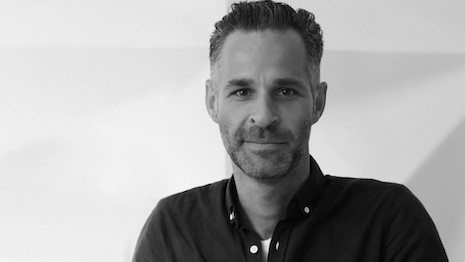 Ewald Damen is creative director and managing partner of Virgile+Partners
Ewald Damen is creative director and managing partner of Virgile+Partners
By Ewald Damen
However ugly the world turns around us, the beauty industry seems to steadily grow.
Despite the recent decline that saw all of us on the sofa without makeup, the industry has bounced back and is now worth a whopping $32 billion in the United Kingdom alone. The global 2022 estimate is over $469 billion with a projected growth to $670 billion by 2025, according to Fashion Discounts.
Unlike many sectors in retail, the beauty industry is rapidly expanding, not only in the luxury sector, but also in emerging markets such as India where beauty will see projected growth over the next few years, tapping into a much wider customer base than reached before.
Custom duty
Especially over the last few years, social media has changed the global and local reach of brands and products.
New and younger brands with more niche products have been able to enter the market and create fierce competition for their larger well-known competitors, who in turn have been reacting with their own new innovations.
The demand for more tailored products has increased over the last few years, and brands have responded with a broader mix of makeup and skincare in multiple tones to reflect their customers.
On top of this, the boom in health and wellness, and the stronger focus on sustainability, has resulted in a desire for more natural, organic and health-focused products – which is now a valuable category.
There is an increasingly wide audience for premium, new and customized products, namely the male customer who is no longer to be underestimated as a consumer of low value and low quantities.
Predicting an even larger percentage growth of 8.4 percent compared to a 2.9 percent up to 2024 – per Persistence Market Research – for the overall beauty industry, an evolving male generation has dropped many of the taboos around grooming, providing a huge potential focus.
Tech that
Technology has entered the beauty world with laser treatments, face scanning, cryotherapy, light treatments and even vitamin drips are now available as additional services in stores and expensive personal home treatment devices.
Natural beauty is expanding into brands such as Facegym, focussing on beauty through skincare products combined with face lifting exercises, tools and masks.
Beauty retailers have cleverly understood that a true beauty offer now includes more than just a lipstick on a counter or shampoo on a shelf.
Services are truly embedded in the new beauty hall and especially the larger department stores such as Harrods that offer a full service alongside a growing and more diverse brand offer. This includes a full beauty concierge, services/treatments and events/masterclasses.
Even in its dedicated regional beauty concept, Harrod’s H Beauty is designed with a comprehensive offer in place with added services such as blow dry bar and an array of branded beauty services at different price levels, complete with F&B offer providing a full dwell time and event-based destination.
Hall mark
With retail in an accelerated future transformation, as more service and experiential driven, we see the same trend appearing in beauty retailing.
The traditional beauty hall as we know it, with its collection of branded boutiques, is slowly disappearing and being reinvented with a curated collection that allows greater flexibility and opportunity for reinvention through new product launches and interesting popups. These have a higher focus on personalization and drawing customers in with added offers and services.
We also see a growing trend of retailers adding beauty as an extension category enhancing their overall product offer.
Brands such as Next and Flannels have introduced their own beauty formats with bespoke services such as the Flannels beauty bar and beauty changing rooms, showcasing that the beauty industry is seen as one of the leading growing categories in which to invest.
Our influencers and bloggers/vloggers surely contributed to the hype and rapid expansion of beauty paving the road for a different engagement and new customer generation.
THE COMBINATION OF online and service-driven bricks-and-mortar retail will continue to drive the future of beauty retailing.
We can already several great examples in more engaging and personalized beauty experiences, paving the way for the future direction.
Ewald Damen is creative director and managing partner of Virgile+Partners, London. Reach him at ewald.damen@virgileandpartners.com.